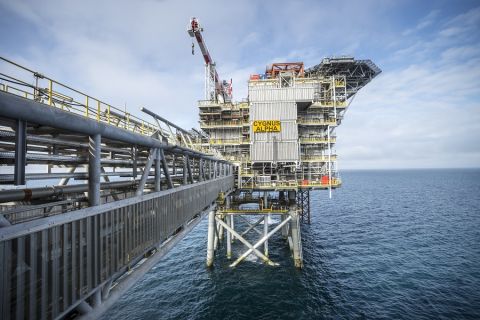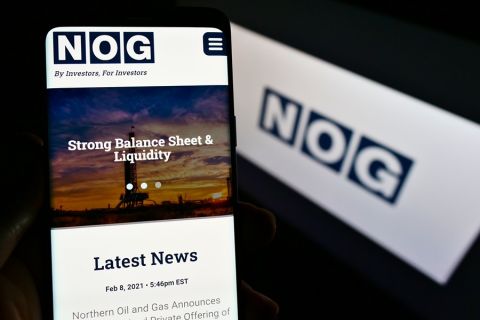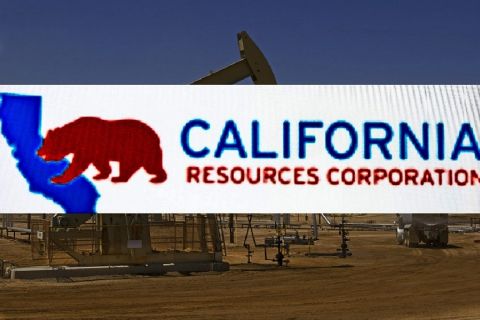For oil, lines between public and private ownership increasingly blurred; energy cost impacts the Doha round of international trade talks Petroleum exploitation, both in supply and demand, has almost always involved negotiation between a government – one hopefully primarily concerned with the welfare of its citizens – and an industry representative company having the expertise and capital needed to discover, produce, and distribute oil and gas. The nature of that government-industry relationship has constantly evolved and – with the emergence of national oil companies (NOC) – radically changed. For one, governments no longer have to look to private means for the capital needed to tap into petroleum resources. The recently released Ernst & Young National Oil Company Monitor 2008, detailing industry developments March through May, pointed out how the roles of NOCs and international oil companies (IOC) are changing in the new world order. Rob Jessen, global oil & gas leader, Ernst & Young, said NOCs are becoming “not only more international in nature but also more integrated, investing in refining and petrochemicals both at home and abroad,” as a means of diversification. Jessen further opined that the downstream arena therefore is one of the more promising for successful partnerships between NOCs and IOCs. “The skills that are associated with refining and petrochemicals operations,” he noted, “may not be possessed by NOCs that have traditionally focused on upstream operations. IOCs have many years of experience managing refining, chemical, and retail activities.” Yet while cast in a positive light, remarks quoted in the Oil Company Monitor by former Kuwait Petroleum Corp. CEO Nader Sultan sound ominous. He said that while IOCs no longer need offer financial capital to already cash-rich NOCs, providing intellectual capital doesn’t offer high enough rates of return. Further, to foster long-term strategic relationships, hinted Sultan, NOCs might consider buying stakes in IOCs. Benefits would include improved NOC regulatory compliance and accountability, as well as greater sophistication concerning brand protection, ethical considerations, and multi-jurisdictional operations. Total SA CEO Christophe de Margerie suggested that the lines would continue to blur with the emergence of a new category, the “international national oil company.” As examples, he pointed to companies such as Petrobras, Petronas, and CNOOC, which have projects in countries the world over. Finally, with the US and European Union (EU) engaged in at least partial nationalization of the financial sector, and the US poised to guarantee huge loans to its automotive industry, can further enmeshment of developed-world governments with the interests of IOCs be far behind? Yet in the US, relationships between the federal government and Big Oil have always been complex. Witness the situation in the 1950s, when the government was twisting arms to exact cooperation between the majors on the international stage and simultaneously taking them to court for US-based activities deemed collusive. Prior to the ongoing credit crisis, Secretary of the Treasury Henry Paulson had time to do other things – like visit China, one of his favorite places to do business. According to the English-language version of the China People’s Daily, when Paulson was there in July, two issues topped the agenda: The then-recent collapse of the Doha round of WTO-sponsored trade talks and the price of oil. The two are not completely unrelated. While neither the oil nor agricultural sectors could be said to enjoy free trade conditions, some say the subsidy mechanism that supports national agriculture interests – especially in developed countries – has attracted far more negative attention than has the cartel approach employed in the oil industry. The so-called Doha round of trade talks, involving 153 member states of the World Trade Organization (WTO), began in 2001, and after several years of delays ,collapsed in July of this year. WTO Director-General Pascal Larmy had convened the July summit to seek a basic deal spanning farming and manufactured goods, with the intention of wrapping up talks on services and other trade rules by the end of 2008. The July talks foundered on the question of when and how countries could invoke a “special safeguard measure” to protect poor farmers when import volumes spike or prices fall. In general, India and China lead a block of developing economies that press the US and European Union (EU) to limit subsidies to their farmers while the US and EU want the emerging heavyweights and others to open their economies and limit import duties. These concerns have only been exacerbated by rising food costs, which are in turn mostly “fueled” by rising energy costs. Subsequent to the talk’s collapse, the US criticized India for rejecting a package of provisions laid out by WTO chief Larmy, and China for backing out on terms it had committed to earlier. Ironically, rising food prices are particularly painful for the oil-rich Gulf States because of water scarcity and limited farmland in those countries. These states are said to be buying huge tracts of farmland abroad to produce output exclusively for their own markets. With their booming economies, then, China and India are 1) a major source of growing energy demand and 2) increasingly powerful as leaders of rapidly industrializing nations. Energy, like earth, water, and air, is one of the fundamental inputs of the agricultural commodities covered in the trade talks, which some hope will soon be revived. Question: Do you think the governments of developed nations ( i.e., the US and EU) should do more to promote the interests of the IOCs? Should the issues of international commodities trade and international oil markets be more closely joined?
Recommended Reading
Exclusive: Rockcliff CEO on $2.7B TGNR Deal, Value of Haynesville M&A
2024-04-10 - Rockcliff Energy CEO and President Alan Smith discusses the ups and downs of executing the transaction with TG Natural Resources and what's on the Rockcliff III radar, in this Hart Energy Exclusive interview.
Eni, Vår Energi Wrap Up Acquisition of Neptune Energy Assets
2024-01-31 - Neptune retains its German operations, Vår takes over the Norwegian portfolio and Eni scoops up the rest of the assets under the $4.9 billion deal.
NOG Closes Utica Shale, Delaware Basin Acquisitions
2024-02-05 - Northern Oil and Gas’ Utica deal marks the entry of the non-op E&P in the shale play while it’s Delaware Basin acquisition extends its footprint in the Permian.
Vital Energy Again Ups Interest in Acquired Permian Assets
2024-02-06 - Vital Energy added even more working interests in Permian Basin assets acquired from Henry Energy LP last year at a purchase price discounted versus recent deals, an analyst said.
California Resources Corp., Aera Energy to Combine in $2.1B Merger
2024-02-07 - The announced combination between California Resources and Aera Energy comes one year after Exxon and Shell closed the sale of Aera to a German asset manager for $4 billion.





